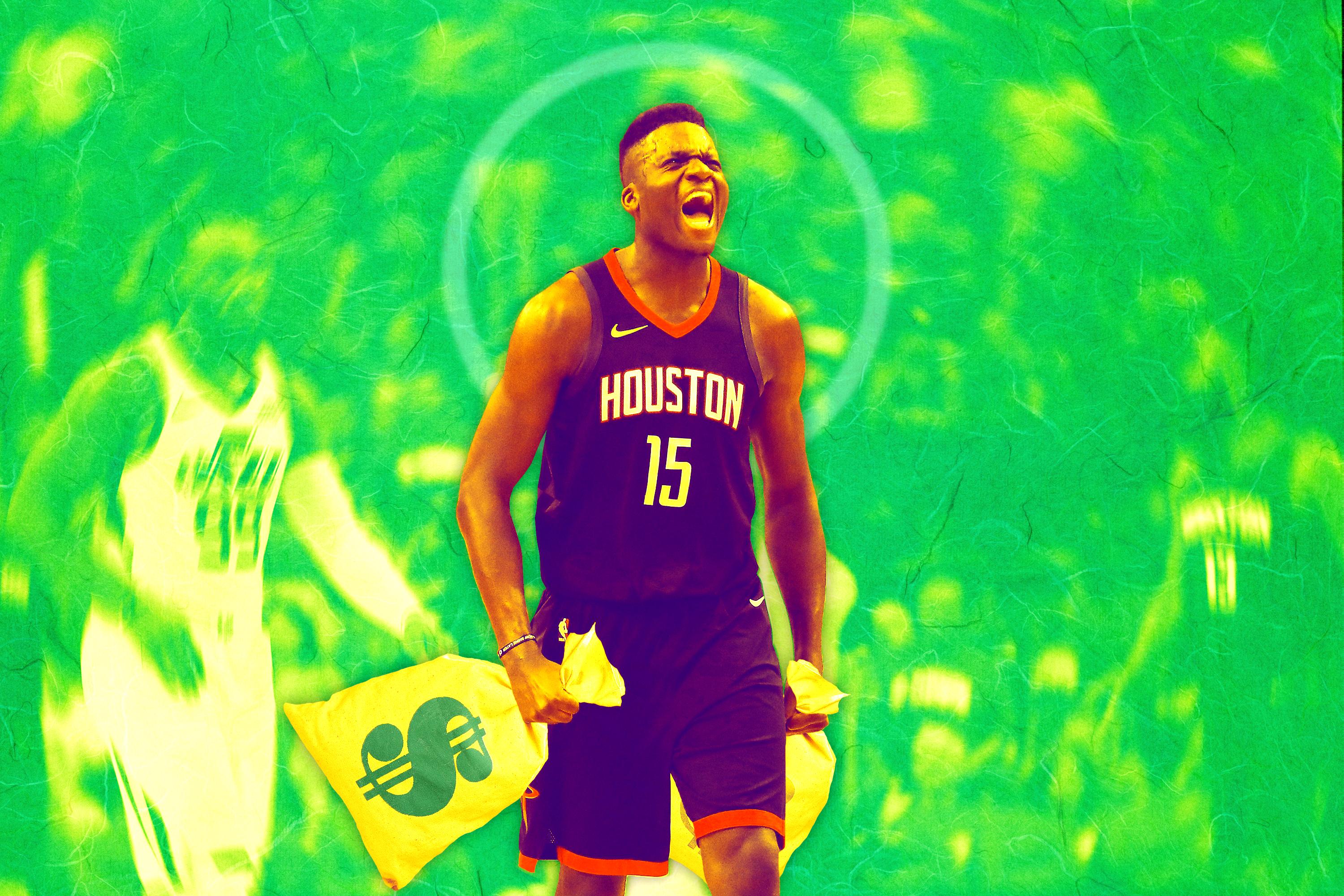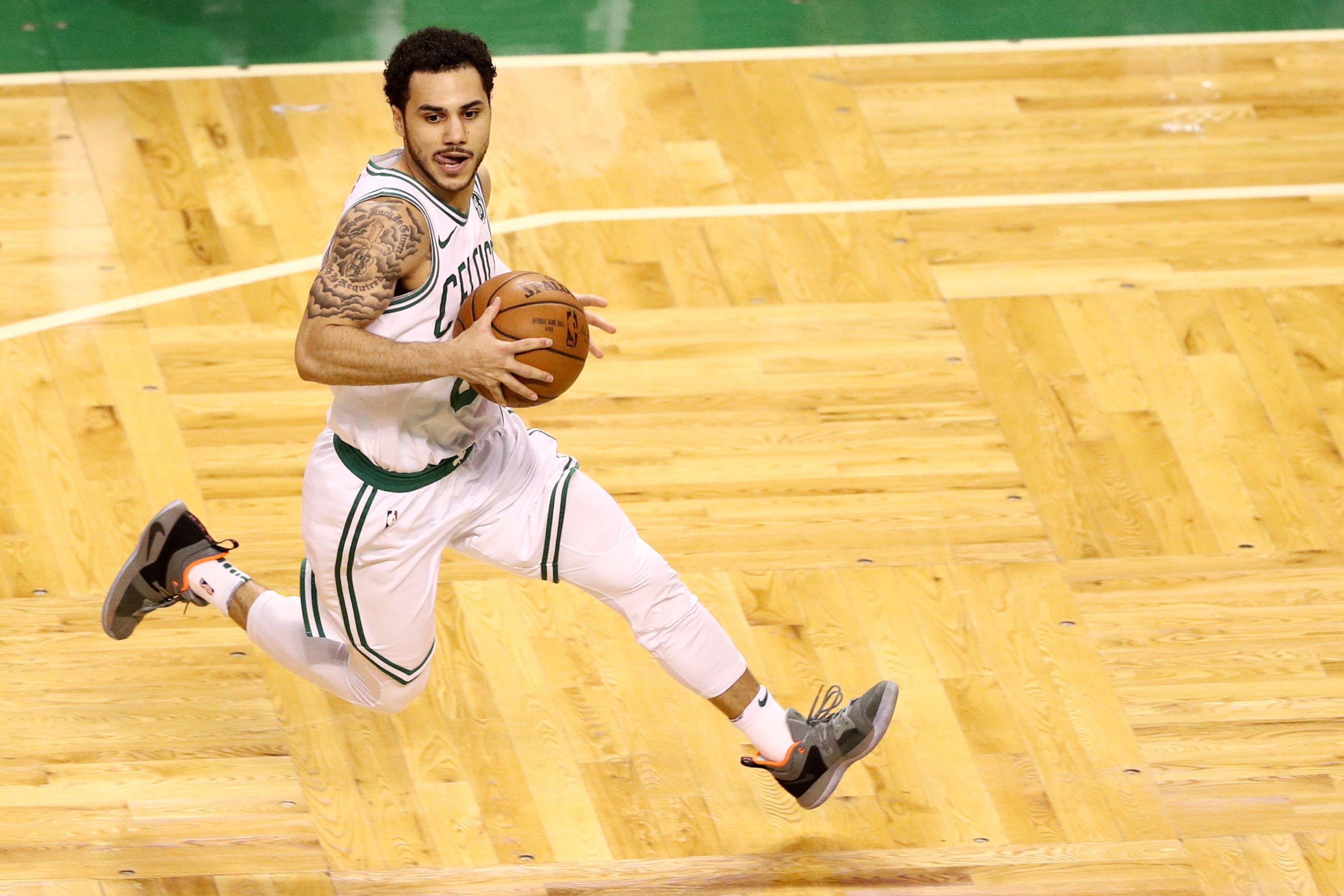
Klay Thompson is a simple man with simple tastes. It’s why, to him, the difference between $110 million and $150 million is something he is reportedly willing to ignore if it means staying with the Warriors. Thompson, who’s had another quietly outstanding postseason, is eligible for an extension this summer, and he and Golden State appear to be on track to lock him up at a price below what he could get on the open market. In a way, Thompson is losing money off these playoffs. But there’s a crop of upcoming free agents whose playoff performances may lead to even bigger paydays this summer.
Here are this postseason’s Moneymaker All-Stars:
G Rajon Rondo, Pelicans
Sure, Rondo’s Pelicans were eliminated in just five games in the conference semifinals, during which the Warriors baited him to shoot wide-open shots. But Rondo had already done his most important work in Round 1. Against Portland, Rondo proved that, even at age 32, he can still make a dramatic impact without having to score. This more sagacious version of Playoff Rondo averaged 11.3 points, 13.3 assists, and 7.5 rebounds in Round 1, and through both series, he averaged 10.3 points, 12.2 assists, and 7.6 rebounds.
Rondo now has the clout to demand a slightly bigger or longer contract than the one-year, $3.3 million deal he got last offseason — though if New Orleans brings DeMarcus Cousins back, its options for doing so may be limited. His importance is clear to the likes of Anthony Davis and Jrue Holiday, and, maybe, to other teams in need of a pass-first point guard.
G Shane Larkin, Celtics
Brad Stevens is making a lot of money for his guards. If Isaiah Thomas hadn’t gotten injured last season, the former All-NBA guard under Stevens would be preparing to cash in this summer. Terry Rozier, a restricted free agent in 2019, is now in line to make so much more than he would have made before these playoffs that he won’t have to sell T-shirts anymore.

And then there’s Larkin, who was almost out of the league after bouncing from Dallas to New York to Brooklyn in the first three years of his career. After a year playing in Spain, he’s suddenly become a proven backup who can provide energy and scoring bursts that can swing a game. His postseason numbers won’t wow you — 3.7 points and 1.8 assists in 14 minutes a game before injuring his shoulder against the Sixers in Game 4 — but when you watch him run the second unit, you wonder why he wasn’t on an NBA roster last season. He may not have the same success under a different coach, but this summer, someone’s bound to give him a shot along with a small raise over his current $1.5 million salary.
SF Jerami Grant, Thunder
You’ll have to dig deeper than the box score to see how important Grant was for the Thunder this season and in the playoffs. OKC had a minus-17.1 net rating when Grant sat during the playoffs, and no one on the Thunder who played more than 10 minutes in the postseason had a better net rating than he did. Somehow, he averaged only 22 minutes a game while Carmelo Anthony averaged 32 minutes a game.
Grant will be crucial for the Thunder, especially if they are able to rid themselves of Melo ($28 million option for next season), but they’ll be forced to pay up if they want to keep him. Grant has the athleticism and tools to be a stretch forward, or even a small-ball center with a shot (he hit 29 percent from 3 this season, but 38 percent last season), and would be perfect to keep alongside Russell Westbrook.
PF Kevon Looney, Warriors

In his first season in the league, Looney averaged just over four minutes a game in five games because of injury. His minutes more than doubled in his second season, and they shot up to 13.8 a game this season. In these playoffs, Looney is up to 21.3 minutes per game for the defending champions, and he’s making an impact during every one of them. The Warriors have a net rating of plus-10 when Looney is on the floor this postseason. As a result, the big man out of UCLA has effectively taken JaVale McGee’s, Zaza Pachulia’s, and even some of David West’s minutes. Anytime Steve Kerr has not gone with the Hamptons Five lineup, Looney has more or less acted as the center. He’s a serviceable pick-and-roll option who can also rebound a bit, but most importantly, he’s not a defensive liability.
C Clint Capela, Rockets
Capela is a restricted free agent this offseason, not an unrestricted one like the four other starters here, but he may have taken the biggest leap of anyone on this list. He’s arguably entered the conversation about the league’s most dynamic young big men by outplaying Karl-Anthony Towns and Rudy Gobert in consecutive playoff series. He’s been great all season, but his postseason numbers — 14.4 points, 12.2 rebounds, and a playoffs-high 2.8 blocks in over four more minutes per game than he averaged in the regular season — have verified that he’s a star in the making. Capela might even be worth a max offer sheet if he can put together a big series against the Warriors’ versatile bigs.
The Swiss big man is a perfect rim-running center for the Rockets’ system, which means they’re not likely to let him go unless they need to free up cap space for someone like LeBron James. Daryl Morey and Rockets ownership might have to pay up in order to retain Capela, who has given the Rockets their own Big Three this season.
Reserves: Ersan Ilyasova and Marco Belinelli, Sixers
A Turk and an Italian (and their agents) walk into Bryan Colangelo’s office. They thank him for bringing them to a contender after they bought their way off a tanking Atlanta Hawks team. Then, they pull up the receipts — or in this case, the stat sheet. Ilyasova notes that he made 36 percent of his 3s in the regular season, and averaged 10.8 points a game in the Miami series. Belinelli points out he shot 39 percent from 3 and nearly 50 percent from the field once he became a Sixer and averaged 17 points a game against the Heat. Colangelo counters with their numbers from the series against the Celtics: 21.4 percent from 3 for Ilyasova, 31 percent for Belinelli, and both with fewer than 10 points a game. A standstill ensues.
Ilyasova and Belinelli may have faded against Boston, but they showed enough in the regular season and during the Miami series to prove they could be shooters off the bench for a contending team. Whether in Philly or elsewhere, there will likely be a bigger market for both.